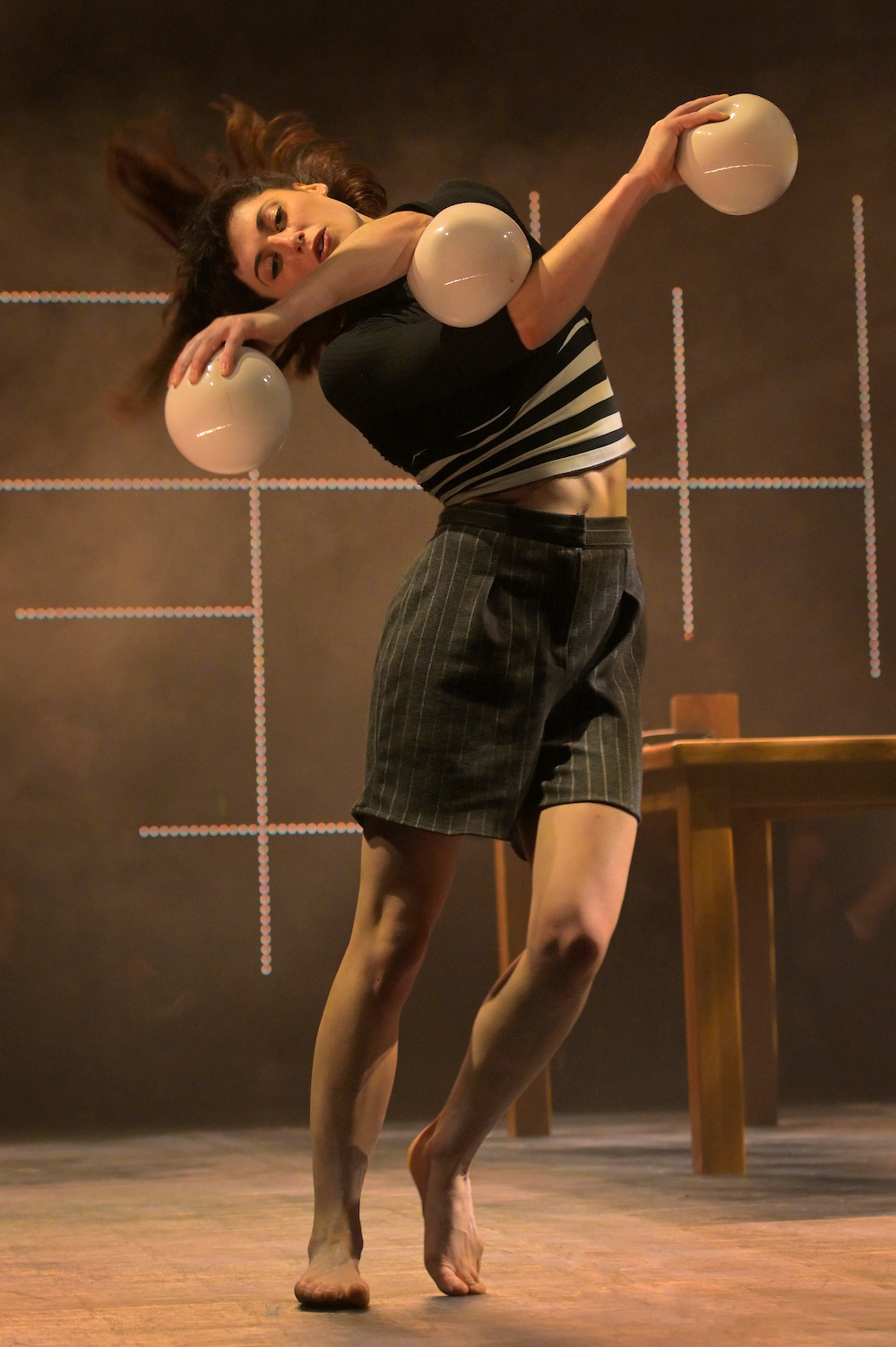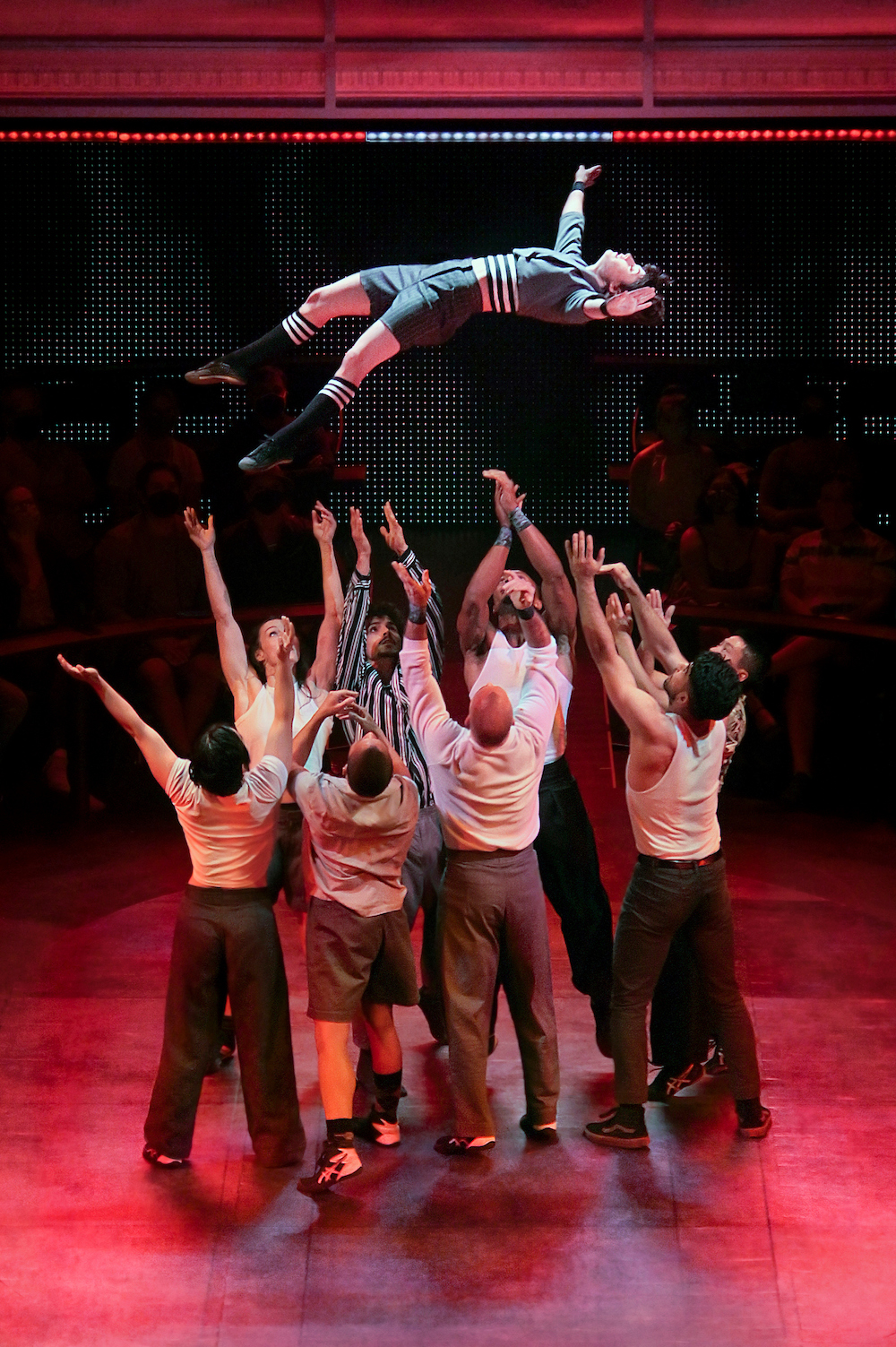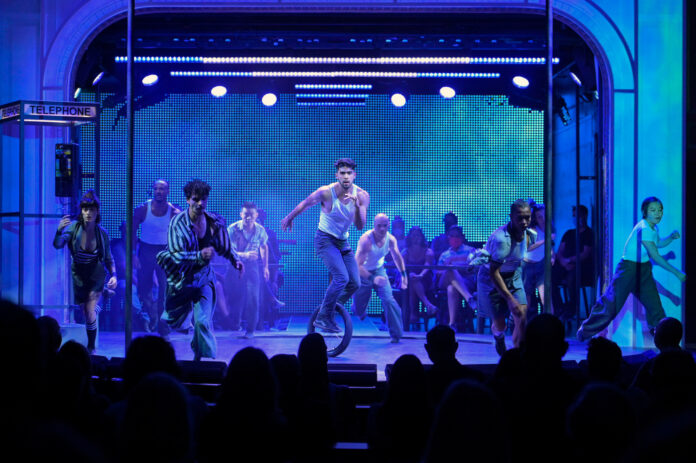Before the show began, Mayor London Breed took to the stage of the newly re-opened Club Fugazi. Removing her mask, she joked that SF’s DPH gave her permission to do so. I guess no “fun police” were in attendance. They’d be the only ones who weren’t there: With the exception of a few empty seats, we were all stuffed elbow-to-elbow in the former longtime home of Beach Blanket Babylon. Thankfully, the volunteers working the door appeared very diligent in checking vax cards and IDs.
When BBB announced it was closing after nearly five decades (thankfully, at the producers’ discretion rather than another “Art is dead in SF!” moment), local troupe The 7 Fingers stepped in to fill the void. Now, after long COVID delay, the fruits of their labor can finally be seen.
As a born San Franciscan and artist with several colleagues connected to the SF Clown Conservatory, I can tell you two things for certain. The first is that Dear San Francisco: A High-Flying Love Story (on an open-ended run at Club Fugazi) is indeed a testament to the artform, yes “artform,” of circus performance. The company of local and international talent appeared so magical in the ease of their execution that the rare stumble was greeted with both applause and encouragement to try again (which they successfully did). Every one of us gathered knew we couldn’t do what the performers could—be it tumbling, balancing, or showcasing diabolos (“Chinese yo-yos”).

The second thing I can tell you is that the show rarely says anything of substance about my hometown. Hell, most of it says nothing at all about The City. Sure, the pre-show playlist includes classics from Santana and Sly & The Family Stone, and the 1906 earthquake anchors the show’s opener and a high-flying teeter-totter sequence. But these are just mere allusions. The high-tech projection screen at the back of the stage—where several table of audience members sit—will show a projection of City Lights in North Beach as the performers read selections from Beat poets (the late Lawrence Ferlinghetti is name-dropped a lot), but no reference to Tony Kushner who wrote his Pulitzer-winning Angels in America here.
Yes, the performers are affectionate in a way that’s not partial to gender, but there’s nary a reference to Harvey Milk or even The Castro. Spoken word pieces applaud The City’s history of activism, but there’s no reference to, say, the 89 Indigenous activists who took over Alcatraz.
At the occasional points where The City is referenced, it’s often low-hanging fruit about the high cost of living and how damn cold it is. Sure, these sequences are funny, I won’t pretend otherwise, but they’re easy. I still laughed at the young woman (played by Natasha Patterson) having a moral crisis over which form of “milk” is most ethical, and a sequence about a tech bro trying to privatize public spaces reminded me of the infamous Dropbox bros incident. But everything is just a quick SF check-in that precedes some damn fine circus work. If you don’t leave this show with a greater appreciation for jumping through hoops and balancing high above the stage, you may be dead already.

It makes sense that London Breed would give the show her blessing as it’s meant to be the sort of tourist-friendly interpretation of SF one might see at Disney’s California Adventure, only a little more queer. They don’t acknowledge that queerness by name, but when a guy tells a story of his first kiss (with another guy) at an SF party, you get the idea.
The closest the show comes to real substance is a heartbreaking closer performed by Chinese acrobat Junru Wang. In between balancing on poles, she allows fellow cast members to write words like “stuck,” “alone,” “fail,” “solitude,” and “broken” over her body in marker. The accompanying music, by Colin Gagné, further illustrates how the piece is about someone visualizing their own depression. It’s a sequence beautiful, sad, and vulnerable. But what does it have to do with San Francisco?
I’ve been actively avoiding direct comparisons between this show and BBB because it wouldn’t be fair to the former. Still, new tenants inevitably get compared to the former. BBB used a quintessential piece of Americana (The Wizard of OZ) and transplanted it to everyone favorite city of hippies, homos, and a helluva lotta fog. Doing so allowed it to have a little fun with the very Mid-Westerners who would pay to see it by throwing SF’s freakishness in their faces. Dear San Francisco, from a narrative perspective, doesn’t challenge its audience or terrify them beyond gasping at the stunts pulled off. Granted, we need that kind of reassurance these days.
Then again, the advantage of BBB was that it had 50 years of evolution and adaptation to find its rhythm. Maybe Dear San Francisco’s open-ended run will produce the same sort of evolution? Until then, you’ve got 90 minutes of jaw-dropping examples of what the human body can do. That’s not a bad thing at all.
Dear San Francisco: A High-Flying Love Story is currently playing at Club Fugazi. More info here.







